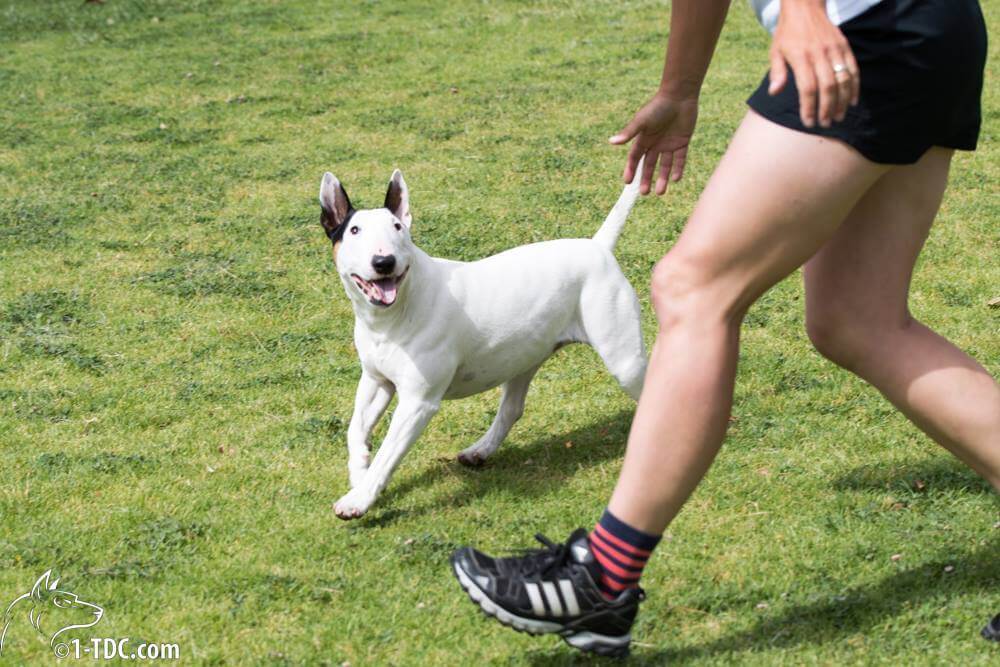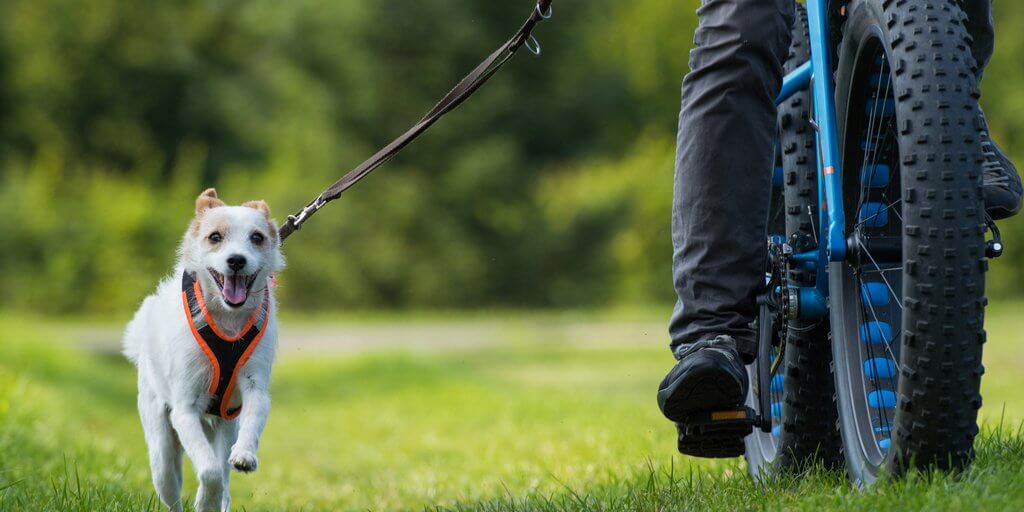Does Training Make Your Dog Smarter? Science is making it clearer that when you train a dog, you do more than teach him a skill. We now know that training may also change your pet's brain and subtly alter his thinking processes. Have you ever wondered, "Does training my dog make him smarter and more trainable?"
Training Methods
The answer to the question has been becoming a bit clearer in recent years. We certainly know that training methods can affect more than just the dogs learned skills. Whether the trainer uses positive versus force based training procedures can affect the dog's personality and emotional behaviors.
Training methods can alter the amount of stress that the dog apparently feels and the amount of aggression that the dog is apt to display. However the issue of whether training actually affects the intelligence of dogs is another matter. As luck would have it we actually do have some relatively recent data on this issue.
Experiment
Sarah Marshall-Pescini of the Psychology Department at the University of Milan led a team of 
Another group was designated as the "Trained Group" and it consisted of 56 dogs with either current or past participation in high level training including agility training, schutzhund training, search and rescue on land and water, retriever working trial training, or musical freestyle performance training. Some dogs were trained in more than one activity.
Choosing a Task
Now one of the cautions that researchers doing this kind of work had to be aware of involves choosing a task which is totally unfamiliar to all of the dogs (and especially something that the trained dogs never had encountered before). So the task that was chosen involved a piece of apparatus which is basically a box that food can be placed in. The lid of the box had to be opened to get at the food treats.
This could be done by either pressing on a paw-pad attached to the box or by the dog poking the lid with his nose. It was reasoned that since this task was a novel one, regardless of the dogs' prior training in other things, it would provide some measure of intelligence, or at least problem-solving.
Conducting The Experiment

Next the box was closed, the experimenter made sure that the dog was watching, and then demonstrated how the box could be opened by either pressing on the paw-pad or by manipulating the lid.
This whole process took 15 to 20 seconds. In the test phase dogs were allowed to freely move around the testing area and interact with the apparatus as they wished for a maximum of 2 minutes.
During this time they were ignored by the experimenter and their owner.
The Results
The results were quite unambiguous. In the group of untrained dogs only 30% solved the problem and successfully got at the food during the test period. However for the group of trained dogs more than twice that number (61%) were successful. Furthermore it became quite clear that the trained dogs were more focused on the problem at hand. They spent more time working at the apparatus and less time looking at their owner or the experimenter. This means that even though the training that the dogs had experienced had nothing to do with this new test task it appears that simply having a lot of training in other areas makes the dogs better problem solvers.
Summary
The experimenters summarize the results by saying, "One possibility is that trained dogs acquire a specific 'learning to learn' ability that may be largely absent in the average pet dog population." They explain what they mean by this
Articled Sourced from Psychology Today
1TDC™ ...the Ultimate Fatty Acid Wellness Solution!
click here & Learn how 1TDC™ will become your 4-in-1
1-TDC Oral Health + Mobility Support for Dogs

$32.00
Keep your pet Happy, Active & Comfortable from Head-to-Tail with 1-TDC. This unique supplement is SO effective that it is recommended by TOP Veterinary Experts worldwide to maintain and improve your pet’s health in 4 important areas: Oral Health….… read more










